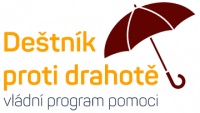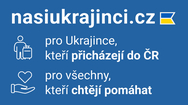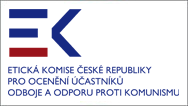Rada vlády pro záležitosti romské menšiny
Dne 26. května 2005 v dopoledních hodinách se uskutečnilo 6. zasedání Mezinárodního řídícího výboru Dekády. Na pořadu jednání byl návrh dokumentu „Terms of Reference“ (Pravidel Dekády na mezinárodní úrovni. Oproti původnímu očekávání jednání pokračovalo pozdě odpoledne, kdy rovněž padl návrh, aby byl vytvořen svěřenecký fond více dárců na podporu Dekády, do něhož by vlády a mezinárodní organizace přispívaly rovným dílem.
I. Introduction and Background
The VI. International Steering Committee Meeting was held in Prague on 26. May 2005. The main objective of the meeting was to discuss the latest draft of the Terms of Reference (ToR) for the implementation of the Decade (see Attachment).
Mr. Ivo Hartmann, Deputy Prime Minister and Minister of Justice, opened the meeting. Representatives of eight governments attended the meeting, along with representatives of the Romani civil society (Young Roma Leaders; YRL) from six countries and representatives of the partner organizations World Bank, Open Society Institute, UNDP, Council of Europe (CoE), Council of Europe Development Bank (CEB), Organisation for Security and Co-operation in Europe (OSCE). [1] Mr. Hartmann stressed that it is important to move from a discussion about procedures to a discussion about the most effective way of implementing the Decade plans.
Ms. Renate Weber, Adviser to the President of Romania, confirmed the commitment of the Romanian government to take over the Decade Presidency on 1 July and outlined the following priorities for the Romanian Presidency: a) mainstreaming and targeting, b) the role of media and communication, and c) access to healthcare.
Mr. Andor Ürmös, representative of the Hungarian government, informed that the Prime Ministers of the Visegrad countries will discuss the Decade during their forthcoming meeting in June and that the Prime Minister of Hungary has proposed to discuss the situation of Roma in general and the Decade in particular, at the level of EU heads of state during the UK Presidency of the EU in the second half of 2005.
Since the initial meeting, which was scheduled to last from 9:00 till 12:00, did not reach a conclusion on the draft TOR, the meeting continued in the afternoon at 17:00. At the afternoon session it was intended that primarily the Government representatives and the Roma representatives should contribute to the further development of the ToR; the international partner organisations should only intervene in cases when crucial issues of their interest are addressed. Following the initiative of the Roma representatives, the afternoon session addressed in particular the relevant issues regarding the participation of Roma in the Decade process.
II. Discussion of the Draft Terms of Reference
The VI. ISC meeting could not address all chapters of the Draft ToR. The chapters I. - III. were discussed and for certain parts an understanding was reached. The chapters IV. – VI. were only partly discussed.
The European Commission proposed to include an additional chapter on “Co-operation with the European Commission”.
The Romani representatives presented a proposal on amendments to the Draft ToR.
The next Draft ToR should propose alternative solutions to issues to which the VI. ISC meeting could not find definite solutions.
The current secretariat, with the support of the Governments of Hungary, Romania and Slovakia, and UNDP and OSI, will include the amendments proposed and further develop the Draft ToR. The participants of the ISC will be given a two week period for commenting the new Draft ToR and send them to the Romanian Government.
24th June 2005: The current Secretariat prepares new Draft ToR and disseminates them to the participants of the ISC.
8th July 2005: The participants of the ISC send their comments on the new Draft ToR to the Romanian Government.
1. General Statements
After a short introduction to the development of the Draft ToR being discussed at the VI. ISC meeting, Mr. Gyula Vamosi, YRL from Hungary, presented in the name of all YRL recommendations to the Draft ToR. In addition to specific points of the Draft ToR, he highlighted two general recommendations:
He reminded the participants that one of the main objectives of the Decade is to “accelerate progress towards improving the welfare of Roma by including Roma in the decision-making process”. Consequently, the Roma should be involved in the decision-making process in the Decade at national and at international level.
The YRL further proposed that the participation of the Romani civil society in the Decade process should not be limited to the YRL, but should be extended to the broadest possible extent and should reflect the expertise prevailing among the Romani civil society representatives.
Mr. Nicolae Gheorghe, OSCE ODIHR CPRSI appreciated the statement of the YRL and emphasised that the participation of Roma in the Decade process is the added value of the Decade. He offered again to organise a workshop for Romani representatives on participation in the Decade.
Mr. Andre Wilkens, OSI, highlighted that the outcome of the meeting should be an agreement on the ToR and that the discussion has to proceed from procedures to the content. He identified four areas where a consensus had not been reached: a) the participation of Roma; b) the Technical Support Office (TSO); c) the budget, and d) reporting and/or knowledge sharing.
Mr. Michael Guet, Council of Europe, considered the draft ToR as a very good basis though not all comments of the CoE were considered. He reiterated the position of CoE that it should be an obligation of translating all Decade-related documents into Romani language.
Bulgaria, mentioned that it has great difficulties with the Draft ToR. The main concerns were the Technical Support Office, the proposed Governance of the Decade, that it is not defined what means “Romani civil society”, the role of the international partner organisations. It is impossible to contribute € 20.000 to the Decade and that the budget is administered by the TSO. Furthermore, that it is impossible for Bulgaria to adopt a document, which includes and refers to two Governments of Serbia and Montenegro.
Mr. Andrey Ivanov, UNDP, identified contradictions in the positions of the participants and that the discussion should therefore, not focus on details first, but should first find solutions for the general framework. According to UNDP with the Draft TOR the Decade is not anymore about what it has been about two years ago when the process started.
Croatia agreed with the position of UNDP, and that the Decade should focus on implementing the National Decade Action Plans.Hungary emphasised that the Draft ToR tried to harmonise all different comments provided prior to the ISC meeting, and that it is important to reach a compromise today.Macedonia explained that due to the fact that it received the Draft ToR only a couple of days prior to the ISC meeting, the Government of Macedonia could not take a decision on its position to the current Daft ToR.Ms. Ivana Skodova, European Commission (EC), referred to its written comments, which requests a separate chapter on co-operation with the European Commission.
2. Discussion of Chapter I. Background (Organisation and Objectives)
Bulgaria emphasised that it cannot accept the term “Government”. The first sentence of paragraph should therefore be changed into (changes in bold letters): “The Decade is an international initiative, which brings together state Governments, inter-governmental and non-governmental organisations as well as Romani civil society…”. The other participants could, however, not agree with this statement.
Discussion of Chapter II. Membership
Bulgaria emphasised that it can accept that wording of paragraph II.A. and that it should read (changes in bold letters): Macedonia, Romania, Serbia and Montenegro, Slovakia. The other participants could, however, not agree with this proposal.
During the discussion on membership it was decided that the Governments should be defined as “members” and that the international partner organisations should not be defined as “members”, but either as “associated members” or as “observers”. A conclusion on how Roma (Romani civil society) should be defined could not be reached.The EC intends to participate actively in the Decade process and at the ISC meetings as an observer.Further discussions related to the voting procedure on the admission of new member Governments. A final decision on the voting procedure was not reached.
Discussion of Chapter III. Duties and Responsibilities
A. Government Members
With regard to the sub-chapter A. Government Members the YRL proposed additional duties and responsibilities. It was agreed to add these duties and responsibilities to the chapter. In addition, an agreement was reached on all points of the Draft ToR, with the exception of point k.), which refers to the contribution of the Member Governments to the budget. A decision on the point k.) was postponed to the discussion of chapter V. Budget. However, during the brief discussion of chapter V. Budget, the point was not discussed. With regard to point h.), referring to monitoring, CoE mentioned that it is awaiting the approval of an EU-funded project focusing on monitoring criteria and respective activities for Government and Roma representatives in Southeast Europe. It should be envisaged to co-ordinate the CoE initiative with the Decade and explore ways to associate the other Decade countries, not including in the CoE project to this project.For the new version of this chapter pls. see the relevant chapter of the next version of the Draft ToR.
B. International Partner Organisations
With regard to the sub-chapter B. International Partner Organisations, Ms. Eva Schwebel, Council of Europe Development Bank (CEB) emphasised that CEB cannot accept point e.) of this sub-chapter. For the new version of this chapter pls. see the relevant chapter of the next version of the Draft ToR.
C. Romani Civil Society
The sub-chapter C. Romani Civil Society underwent substantial changes based on recommendations provided by the YRL. Most of the Government representatives welcomed the initiative of the YRL and supported (most of) the recommendations. Slovakia informed the participants that it already initiated a closer co-operation with the Romani civil society.Crucial points of discussion were a) if the Romani representatives should participate at the ISC meetings as members of the national delegations or independently as representatives of the respective national Romani civil societies, b) if voting rights at the ISC meetings should be assigned to the Romani representatives, c) the mechanisms to be established in order to reach a broader participation of the Romani civil society at national level, and d) the position and the functions of the proposed “Romani consultant”. The latter issue was postponed to a more in-detail discussion on the TSO, was however, not addressed anymore. A principle agreement was reached that the Governments should consider to support either Romani Consultants or Romani consultancy bodies at national level. Furthermore, UNDP noted that a “civil society” cannot assume “duties and responsibilities” and that the sub-chapter “Romani civil society” should be placed in a different chapter, and Bulgaria requested a definition of “local Romani communities”, since this term might not be accepted by Roma in Bulgaria.For the new version of this chapter pls. see the relevant chapter of the next version of the Draft ToR.
Discussion of Chapter IV. Governance Structure of the Decade
The discussion on this chapter focused on the necessity of voting at ISC meetings and in case there will be a voting mechanism at ISC meetings, if the Romani representatives and the international partner organisations should be permitted to exercise voting rights.UNDP questioned, if voting at ISC meetings is necessary at all. However, voting took already place at ISC meetings, and the YRL representatives reminded the participants that at these voting procedures, Roma were excluded from taking part.Another point of discussion was, if it is necessary to introduce a voting procedure with a qualitative majority or if decisions should be taken by consensus.Irrespective of the procedure, the participation of the Romani representatives and the international partner organisations in this process were broadly discussed without reaching an agreement or finding a solution, which would have suited all participants. While it was decided that international partner organisations should not obtain voting rights in principle, OSI mentioned that with regard to certain decisions, which directly affect the partner organisations such as OSI or World Bank, e.g., with regard to financial issues, the respective organisations must have a voting right on those issues (see 6. Discussion on Chapter V. Budget). Discussion on the voting rights for Roma representatives focused on the options whether those should be part of the national delegation or separate. There has not been a decision on the way voting rights of the Roma representatives are exercised as well as if decisions of the ISC should be based on majority voting or on consensus.
Discussion of Chapter V. Budget
Some of the countries could already commit themselves to contributing to the envisaged common budget of the Decade. The Draft ToR proposed € 20,000 as the amount of the annual contribution. According to the Draft ToR, the annual contribution of the Member Governments and the international partner organisations should have been primarily used for the activities and maintenance of the Technical Support Office. Croatia agreed that it could contribute € 20,000, Czech Republic agreed that it could contribute € 10,000, while Serbia also agreed that it contribute € 10,000, however, emphasised in this context the need of having the Technical Support Office. Bulgaria mentioned that it could not finance the Technical Support Office, without specifying, if in general a contribution would be possible. The Government of Macedonia did not decide yet, if an annual contribution is possible. The representative of Slovakia had already left the meeting at this point of discussion. The Czech Republic further specified its (financial) commitment by explaining that Czech Republic would prefer that its contribution should be used for international activities rather than administrative costs. The TSO should undertake fund-raising to increase the budget for international activities and for administrative costs. Contributions from Governments, international organisations and other donors should be paid into a Decade Trust Fund. OSI took up the proposal of the Czech Republic and recommended that it should be discussed more in detail as an alternative solution to the TSO. In case that the financial contributions would be paid into a “Trust Fund” and would be considered as endowments to the TSO, the participating Governments and the international partner organisations could decide to offer in addition “in-kind contributions” such as seconding personnel to managing this “Trust Fund” and conducting the envisaged activities. Some Government representatives supported the proposal to develop in detail the alternative of a “Trust Fund” and that the new Draft ToR should include a proposal for the TSO and for the “Trust Fund”. The World Bank indicated that it would consider seconding personnel to the TSO or Decade Trust Fund. Hungary stated that it is committed to host the TSO or Decade Trust Fund and that it would consider preferential tax treatment. However, the management structure of such a “Trust Fund” still has to be established, and decisions have to be taken on the allocations of finances from this “Trust Fund”, which would require that ISC introduces a voting system and that international partner organisations should obtain voting rights. The majority of the other international partner organisations (CEB, CoE, EC, OSCE, World Bank) did not participate in the afternoon session; UNDP did not comment on this point. Therefore, the position of these organisations on annual contributions remains unclear.
III. Further Procedure and Next ISC Meeting
The current secretariat, in co-operation with the Governments of Hungary, Romania and Slovakia, and UNDP and OSI, drafts new ToR. The participants of the ISC will be given a two week period for commenting the new Draft ToR and send them to the Romanian Government. The next ISC meeting, which will be held in Bucharest, discusses the next Draft ToR. The exact date of the meeting has to be determined.
[1] The participating Governments are: Bulgaria, Croatia, the Czech Republic, FYR Macedonia, Hungary, Montenegro, Romania, Serbia, and the Slovak Republic. The Government of Montenegro did not participate at this ISC meeting. Throughout the text the term “government” is used. The representative of Bulgaria noted that instead of “government” the term “state government” should be used. The international partner organizations ERRC, ERIO and ERTF did not participate at this ISC meeting. A full list of participants is included as Annex 1.





